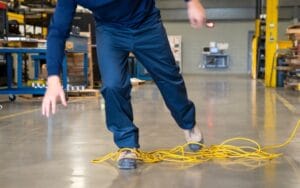California law requires that workers get a break at least every five hours. During that break workers are required to be completely “off duty.” This California Rest-Break law has created problems within the airline industry. Federal regulations require that flight attendants be ready at all times for emergencies and remain on duty for phases of flight. Under California law, flight attendants must be free to leave the aircraft to be considered off duty.
A federal law prohibits states from adopting measures that affect the prices, routes, and services offered by airlines. However, the San Francisco 9th Circuit Court of Appeals ruled last year that state wage laws that apply to all workers should also cover airline employees. In the San Francisco case, several Virgin America flight attendants sued the airline (now owned by Alaska airlines) for failing to comply with California labor laws. The court ruled that the airline had to give its flight attendants meal and rest breaks required by California law.
In its petition, Alaska Airlines argued that federal law imposes a nationwide uniform standard for all airlines to follow. Additionally, in 2021 Airlines for America wrote to the Supreme Court in a brief stating that imposing state requirements on the airline industry would drastically affect the industry.
On June 30th, 2022, the US Supreme Court turned down Alaska Airlines efforts to avoid the California Rest-Break law. Justices declined to hear the appeal by Alaska Airlines after the lower court’s ruling that the company had to give its flight attendants meal and rest breaks. Trade group, Airlines in America, have said this decision will lead to more canceled flights and higher ticket prices. Specifically, Alaska Airlines says the ruling will force the airline to add extra crew to many flights when the company is already suffering from a labor shortage.
The flight attendants suing the airlines argue that the airline can easily avoid the effects of the ruling by simply adding one additional flight attendant to longer flights so that they can rotate breaks. The flight attendants and their union backing estimate that this solution would only cost the airline $100 extra per flight.
The flight attendants were awarded $1.4 million for their rest break claims.
The US Supreme Court also rejected a separate case brought by Airlines for America that challenged the state of Washington’s ability to enforce state employment laws against airlines.
Airlines for America has stated, “”the lack of a definitive answer from the court does not resolve the conflict between state and federal law … and will result in a patchwork of costly and conflicting state regulations, as at least 19 states have some form of meal and rest break laws.”






